- Home
- George R. R. Martin
Dying of the Light
Dying of the Light Read online
Table of Contents
Title Page
Dedication
Prologue
Chapter 1
Chapter 2
Chapter 3
Chapter 4
Chapter 5
Chapter 6
Chapter 7
Chapter 8
Chapter 9
Chapter 10
Chapter 11
Chapter 12
Chapter 13
Chapter 14
Chapter 15
Epilogue
Glossary
About the Author
Other Books by George R. R. Martin
Praise for the early novels of George R. R. Martin
Back Ads
Copyright Page
for Rachel,
who loved me once
PROLOGUE
A rogue, an aimless wanderer, creation’s castaway; this world was all those things.
For uncounted centuries it had been falling, alone, without purpose, falling through the cold lonely places between the suns. Generations of stars had succeeded each other in stately sweeps across its barren skies. It belonged to none of them. It was a world in and of itself; entire. In a sense it was not even part of the galaxy; its tumbling path cut through the galactic plane like a nail driven through a round wooden tabletop. It was part of nothing.
And nothing was very close at hand. In the dawn of human history, the rogue world pierced a curtain of interstellar dust that covered a trifling small area near the up-edge of the galaxy’s great lens. A handful of stars lay beyond—thirty or so, a mere handful. Then emptiness, a night greater than any the wandering world had known.
There, falling through that shadowed border region, it met the shattered people.
The Earth Imperials found it first, at the height of their giddy, drunken expansion, when the Federal Empire of Old Earth was still trying to rule all the worlds of humanity across immense impossible gulfs. A warship named the Mao Tse-tung, crippled during a raid on the Hrangans, its crew dead at their stations, its engines alternately shifting into drive and out again, became the first ship of the manrealm to drift beyond the Tempter’s Veil. The Mao was a derelict, airless and full of grotesque corpses that bobbed aimlessly through its corridors and brushed against its bulkheads every century or so; but its computers still functioned, cycling blindly through their rituals, scanning well enough to note the nameless rogue planet on their charts when the ghost ship emerged from drive within a few light-minutes of it. Almost seven centuries later a trader out of Tober stumbled on the Mao Tse-tung, and that notation.
By then it was no news; the world had been found again.
Celia Marcyan was the second discoverer. Her Shadow Chaser circled the dark planet for a standard day, during the generation of interregnum that followed the Collapse. But the rogue had nothing for Celia, only rock and ice and never-ending night, so it was not long until she went on her way. She was a namer, however, and before she left she gave the world a name. Worlorn she called it, and never said why or what it meant, and Worlorn it was. And Celia moved on to other worlds and other stories.
Kleronomas was the next visitor, in ai-46. His survey ship made a few brief passes and mapped the wastes. The planet yielded up its secrets to his sensors; it was larger and richer than most, he discovered, with frozen oceans and frozen atmosphere, waiting for release.
Some say that Tomo and Walberg were the first to land on Worlorn, in ai-97, on their madman’s quest to cross the galaxy. True? Probably not. Every world in the manrealm has a story of Tomo and Walberg, but the Dreaming Whore never returned, so who can know where it landed?
The later sightings had more of fact about them and less of legend. Starless and useless and only marginally interesting, Worlorn became a common notation on the starcharts of the Fringe, that scattering of thinly settled worlds between the smoke-dark gases of the Tempter’s Veil and the Great Black Sea itself.
Then, in ai-446, an astronomer on Wolfheim made Worlorn the subject of his studies, and for the very first time someone bothered to string all the coordinates together. That was when things changed. The name of the Wolfman astronomer was Ingo Haapala, and he emerged from his computer room wildly excited, the way Wolfmen often get. For Worlorn was to have a day—a long bright day.
The constellation called the Wheel of Fire burned in every outworld sky; the wonder of it was notorious as far inward as Old Earth. The center of the formation was the red supergiant, the Hub, the Helleye, Fat Satan—it had a dozen names. In orbit around it, equidistant, arrayed neatly like six marbles of yellow flame rolling around a single groove, were the others: the Trojan Suns, Satan’s Children, the Hellcrown. The names did not matter. What mattered was the Wheel itself, six medium-sized yellow stars doing homage to their vast red master, at once the most unlikely and stable multiple-star system yet discovered. The Wheel was a seven-day sensation, a new mystery for a humanity jaded on the old mysteries. On the more civilized worlds, scientists put forth theories to explain it; beyond the Tempter’s Veil, a cult grew up around it, and men and women spoke of a vanished race of stellar engineers who had moved whole suns to build themselves a monument. Scientific speculation and superstitious worship both waxed feverish for a few decades and then began to wane; very shortly the matter was forgotten.
The Wolfman Haapala announced that Worlorn would sweep around the Wheel of Fire once, in a wide slow hyperbola, never entering the system proper but coming close enough. Fifty standard years of sunlight; then out again into the darkness of the Fringe, past the Last Stars, into the Great Black Sea of intergalactic emptiness.
Those were the restless centuries, when High Kavalaan and the other outworlds were tasting their first pride and growing anxious to find a place in the shattered histories of humanity. And everyone knows what happened. The Wheel of Fire had always been the glory of the outworlds, but it had been a planetless glory, until now.
There was a century of storms as Worlorn neared the light: years of melting ice and volcanic activity and earthquakes. A frozen atmosphere came, bit by bit, to life, and hideous winds howled like monster infants. All this the outworlders faced and fought.
The terraformers came from Tober-in-the-Veil, the weather wardens from Darkdawn, and there were other teams from Wolfheim and Kimdiss and ai-Emerel and the World of the Blackwine Ocean. The men of High Kavalaan supervised it all, since High Kavalaan claimed the rogue. The struggle took more than a century, and those who died are still half-myth to the children of the Fringe. But at last Worlorn was gentled. Then cities rose, and strange forests flowered beneath the light of the Wheel, and animals were set loose to give the planet life.
In ai-589 the Festival of the Fringe opened, with Fat Satan filling a quarter of the sky and his children bright around him. On that first day the Toberians let their stratoshield shimmer, so the clouds and the sunlight ran and swirled in kaleidoscope patterns. Other days followed, and the ships came. From all the outworlds, and from worlds beyond, from Tara and Daronne on the other side of the Veil, from Avalon and Jamison’s World, from places as distant as Newholme and Old Poseidon and even Old Earth itself. For five standard years Worlorn moved toward perihelion; for five it moved away. In ai-599 the Festival closed.
Worlorn entered twilight, and fell toward night.
1
Beyond the window, water slapped against the pilings of the wooden sidewalk along the canal. Dirk t’Larien looked up and saw a low black barge drift slowly past in the moonlight. A solitary figure stood at the stern, leaning on a thin dark pole. Everything was etched quite clearly, for Braque’s moon was riding overhead, big as a fist and very bright.
Behind it was a stillness and a smoky darkness, an unmoving curtain that hid the
farther stars. A cloud of dust and gas, he thought. The Tempter’s Veil.
The beginning came long after the end: a whisperjewel.
It was wrapped in layers of silver foil and soft dark velvet, just as he had given it to her years before. He undid its package that night, sitting by the window of his room that overlooked the wide scummy canal where merchants poled fruit barges endlessly up and down. The gem was just as Dirk recalled it: a deep red, laced with thin black lines, shaped like a tear. He remembered the day the esper had cut it for them, back on Avalon.
After a long time he touched it.
It was smooth and very cold against the tip of his finger, and deep within his brain it whispered. Memories and promises that he had not forgotten.
He was here on Braque for no particular reason, and he never knew how they found him. But they did, and Dirk t’Larien got his jewel back.
“Gwen,” he said quietly, all to himself, just to shape the word again and feel the familiar warmth on his tongue. His Jenny, his Guinevere, mistress of abandoned dreams.
It had been seven standard years, he thought, while his finger stroked the cold, cold jewel. But it felt like seven lifetimes. And everything was over. What could she want of him now? The man who had loved her, that other Dirk t’Larien, that maker-of-promises and giver-of-jewels, was a dead man.
Dirk lifted his hand to brush a spray of gray-brown hair back out of his eyes. And suddenly, not meaning to, he remembered how Gwen would brush his hair away whenever she meant to kiss him.
He felt very tired then, and very lost. His carefully nurtured cynicism trembled, and a weight fell upon his shoulders, a ghost weight, the heaviness of the person he had been once and no longer was. He had indeed changed over the years, and he had called it growing wise, but now all that wisdom abruptly seemed to sour. His wandering thoughts lingered on all the promises he had broken, the dreams he had postponed and then mislaid, the ideals compromised, the shining future lost to tedium and rot.
Why did she make him remember? Too much time had passed, too much had happened to him—probably to both of them. Besides, he had never really meant for her to use the whisperjewel. It had been a stupid gesture, the adolescent posturing of a young romantic. No reasonable adult would hold him to such an absurd pledge. He could not go, of course. He had hardly had time to see Braque yet, he had his own life, he had important things to do. After all this time, Gwen could not possibly expect him to ship off to the outworlds.
Resentful, he reached out and took the jewel in his palm, and his fist closed hard around the smallness of it. He would toss it through the window, he decided, out into the dark waters of the canal, out and away with everything that it meant. But once within his fist, the gem was an ice inferno, and the memories were knives.
. . . because she needs you, the jewel whispered. Because you promised.
His hand did not move. His fist stayed closed. The cold against his palm passed beyond pain, into numbness.
That other Dirk, the younger one, Gwen’s Dirk. He had promised. But so had she, he remembered. Long ago on Avalon. The old esper, a wizened Emereli with a very minor Talent and red-gold hair, had cut two jewels. He had read Dirk t’Larien, had felt all the love Dirk had for his Jenny, and then had put as much of that into the gem as his poor psionic powers allowed him to. Later, he had done the same for Gwen. Then they had traded jewels.
It had been his idea. It may not always be so, he had told her, quoting an ancient poem. So they had promised, both of them: Send this memory, and I will come. No matter where I am, or when, or what has passed between us. I will come, and there will be no questions.
But it was a shattered promise. Six months after she had left him, Dirk had sent her the jewel. She had not come. After that, he could never have expected her to invoke his promise. Yet now she had.
Did she really expect him to come?
And he knew, with sadness, that the man he had been back then, that man would come to her, no matter what, no matter how much he might hate her—or love her. But that fool was long buried. Time and Gwen had killed him.
But he still listened to the jewel and felt his old feelings and his new weariness. And finally he looked up and thought, Well, perhaps it is not too late after all.
There are many ways to move between the stars, and some of them are faster than light and some are not, and all of them are slow. It takes most of a man’s lifetime to ship from one end of the manrealm to the other, and the manrealm—the scattered worlds of humanity and the greater emptiness in between—is the very smallest part of the galaxy. But Braque was close to the Veil, and the outworlds beyond, and there was some trade back and forth, so Dirk could find a ship.
It was named the Shuddering of Forgotten Enemies, and it went from Braque to Tara and then through the Veil to Wolfheim and then to Kimdiss and finally to Worlorn, and the voyage, even by FTL drive, took more than three months standard. After Worlorn, Dirk knew, the Shuddering would move on, to High Kavalaan and ai-Emerel and the Last Stars, before it turned and began to retrace its tedious route.
The spacefield had been built to handle twenty ships a day; now it handled perhaps one a month. The greater part of it was shut, dark, abandoned. The Shuddering set down in the middle of a small portion that still functioned, dwarfing a nearby cluster of private ships and a partially dismantled Toberian freighter.
A section of the vast terminal, automated and yet lifeless, was still brightly lit, but Dirk moved through it quickly, out into the night, an empty outworld night that cried for want of stars. They were there, waiting for him, just beyond the main doors, more or less as he had expected. The captain of the Shuddering had lasered on ahead as soon as the ship emerged from drive into normal space.
Gwen Delvano had come to meet him, then, as he had asked her to. But she had not come alone. Gwen and the man she had brought with her were talking to each other in low, careful voices when he emerged from the terminal.
Dirk stopped just past the door, smiled as easily as he could manage, and dropped the single light bag he carried: “Hey,” he said softly. “I hear there’s a Festival going on.”
She had turned at the sound of his voice, and now she laughed, a so-well-remembered laugh. “No,” she said. “You’re about ten years too late.”
Dirk scowled and shook his head. “Hell,” he said. Then he smiled again, and she came to him, and they embraced. The other man, the stranger, stood and watched without a trace of self-consciousness.
It was a short hug. No sooner had Dirk wrapped his arms about her than Gwen pulled back. After the break they stood very close, and each looked to see what the years had done.
She was older but much the same, and what changes he saw were probably only defects in his memory. Her wide green eyes were not quite as wide or green as he remembered them, and she was a little taller than he recalled and perhaps a bit heavier. But she was close enough; she smiled the same way, and her hair was the same; fine and dark, falling past her shoulders in a shimmering stream blacker than an outworld night. She wore a white turtleneck pullover and belted pants of sturdy chameleon cloth, faded to night-black now, and a thick headband, as she had liked to dress on Avalon. Now she wore a bracelet too, and that was new. Or perhaps the proper word was armlet. It was a massive thing, cool silver set with jade, that covered half her left forearm. The sleeve of her pullover was rolled back to display it.
“You’re thinner, Dirk,” she said.
He shrugged and thrust his hands into his jacket pockets. “Yes,” he said. In truth, he was almost gaunt, though still a little round-shouldered from slouching too much. The years had aged him in other ways as well; now his hair had more gray than brown, when once it had been the other way around, and he wore it nearly as long as Gwen, though his was a mass of curls and tangles.
“A long time,” Gwen said.
“Seven years, standard,” he replied nodding. “I didn’t think that . . .”
The other man, the waiting stranger, coughed then,
as if to remind them that they were not alone. Dirk glanced up, and Gwen turned. The man came forward and bowed politely. Short and chubby and very blond—his hair looked almost white—he wore a brightly colored silkeen suit, all green and yellow, and a tiny black knit cap that stayed in place despite his bow.
“Arkin Ruark,” he said to Dirk.
“Dirk t’Larien.”
“Arkin is working with me on the project,” Gwen said.
“Project?”
She blinked. “Don’t you even know why I’m here?”
He didn’t. The whisperjewel had been sent from Worlorn, so he had known not much else than where to find her. “You’re an ecologist,” he said. “On Avalon . . .”
“Yes. At the Institute. A long time ago. I finished there, got my credentials, and I’ve been on High Kavalaan since. Until I was sent here.”
“Gwen is with the Ironjade Gathering,” Ruark said. He had a small, tight smile on his face. “Me, I’m representing Impril City Academy. Kimdiss. You know?”
Dirk nodded. Ruark was a Kimdissi then, an outworlder, from one of their universities.
“Impril and Ironjade, well, after the same thing, you know? Research on ecological interaction on Worlorn. Never really done properly during the Festival, the outworlds not being so strong on ecology, none of them. A science ai-forgotten, as the Emereli say. But that’s the project. Gwen and I knew each other from before, so we thought, well, here for the same reason, so it is good sense to work together and learn what we can learn.”
“I suppose,” Dirk said. He was not really overly interested in the project just then. He wanted to talk to Gwen. He looked at her. “You’ll have to tell me all about it later. When we talk. I imagine you want to talk.”
She gave him an odd look. “Yes, of course. We do have a lot to talk about.”
He picked up his bag. “Where to?” he asked. “I could probably do with a bath and some food.”
Gwen exchanged glances with Ruark. “Arkin and I were just talking about that. He can put you up. We’re in the same building. Only a few floors apart.”

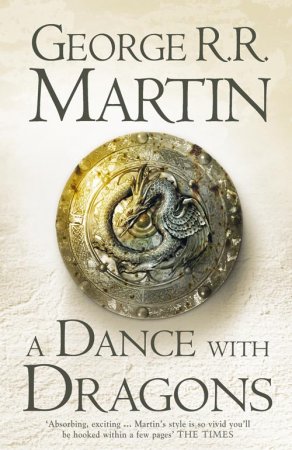 A Dance with Dragons
A Dance with Dragons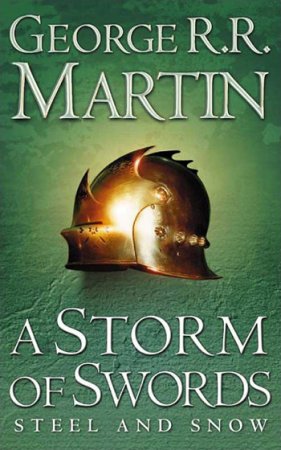 A Storm of Swords
A Storm of Swords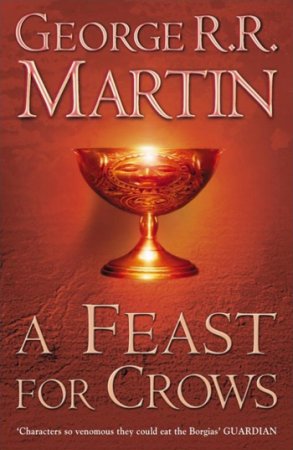 A Feast for Crows
A Feast for Crows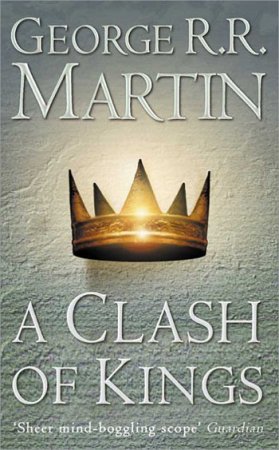 A Clash of Kings
A Clash of Kings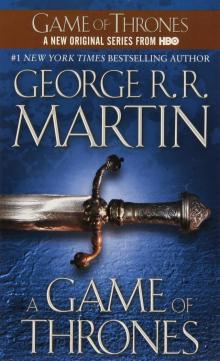 A Game of Thrones
A Game of Thrones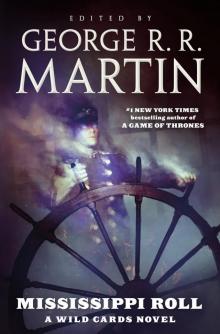 Mississippi Roll
Mississippi Roll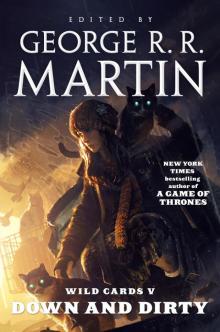 Wild Cards V: Down and Dirty
Wild Cards V: Down and Dirty Busted Flush
Busted Flush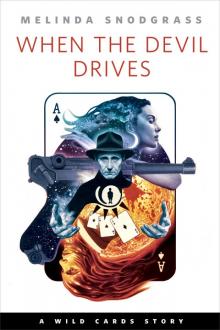 When the Devil Drives
When the Devil Drives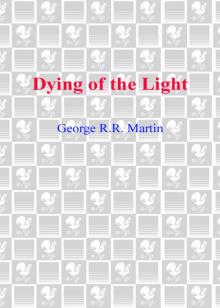 Dying of the Light
Dying of the Light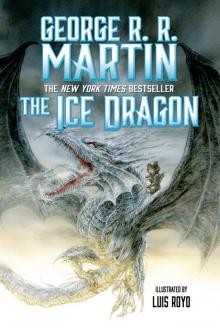 The Ice Dragon
The Ice Dragon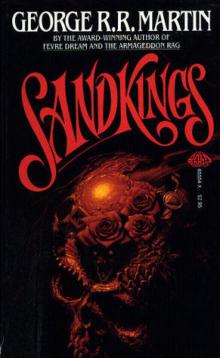 Sandkings
Sandkings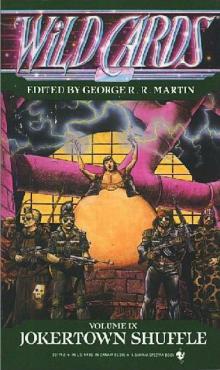 Jokertown Shuffle
Jokertown Shuffle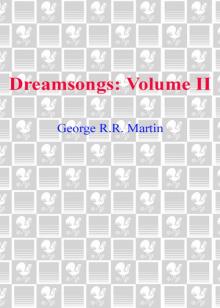 Dreamsongs. Volume II
Dreamsongs. Volume II Deuces Down
Deuces Down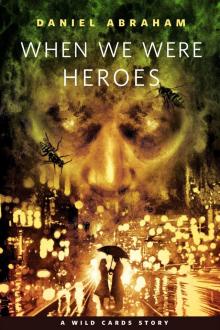 When We Were Heroes
When We Were Heroes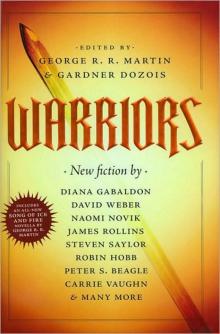 Warriors
Warriors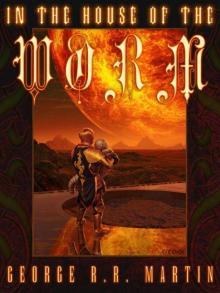 In the House of the Worm
In the House of the Worm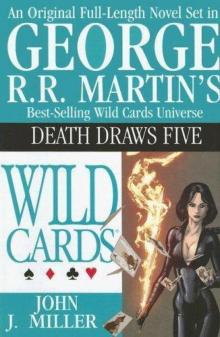 Death Draws Five
Death Draws Five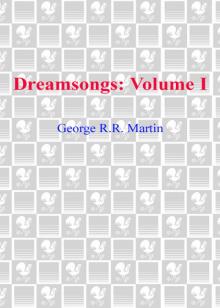 Dreamsongs. Volume I
Dreamsongs. Volume I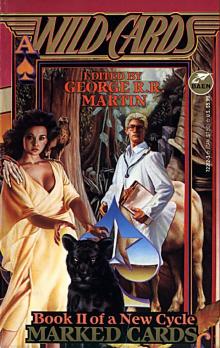 Marked Cards
Marked Cards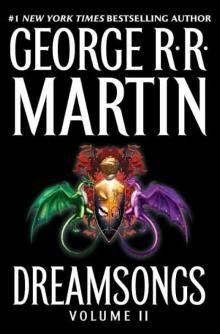 Dreamsongs
Dreamsongs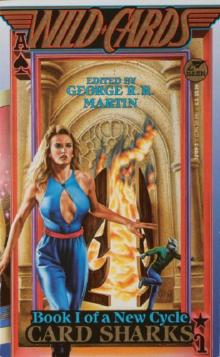 Card Sharks
Card Sharks Dangerous Women
Dangerous Women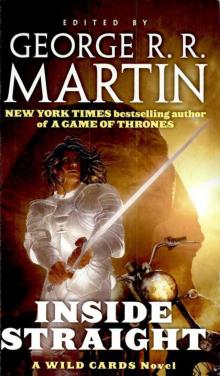 Inside Straight
Inside Straight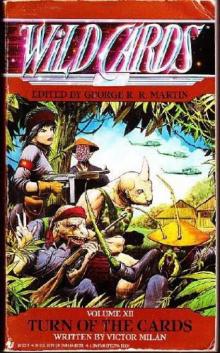 Turn of the Cards
Turn of the Cards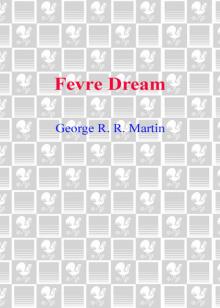 Fevre Dream
Fevre Dream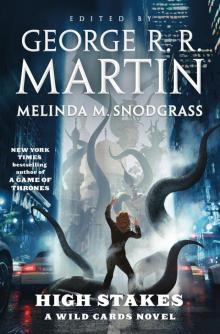 High Stakes: A Wild Cards Novel
High Stakes: A Wild Cards Novel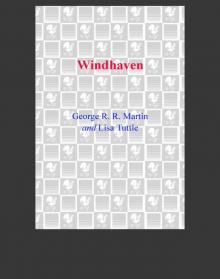 Windhaven
Windhaven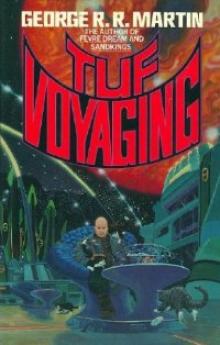 Tuf Voyaging
Tuf Voyaging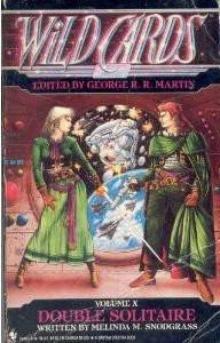 Double Solitaire
Double Solitaire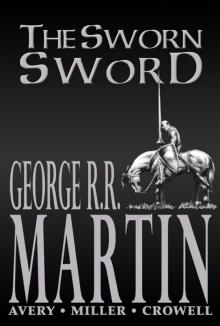 The Sworn Sword
The Sworn Sword Low Chicago
Low Chicago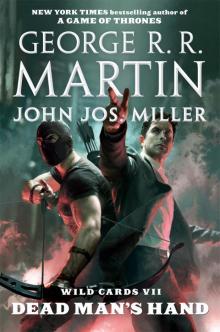 Dead Man's Hand
Dead Man's Hand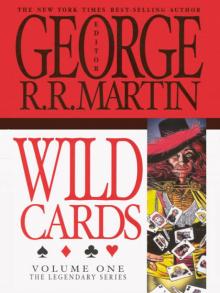 Wild Cards
Wild Cards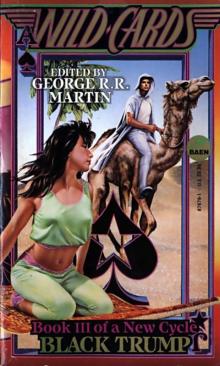 Black Trump
Black Trump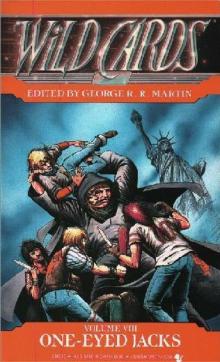 One Eyed Jacks
One Eyed Jacks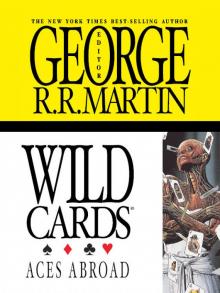 Wild Cards: Aces Abroad
Wild Cards: Aces Abroad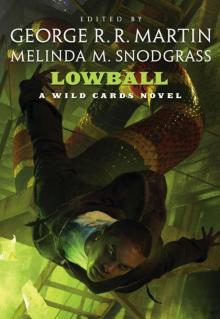 Lowball: A Wild Cards Novel
Lowball: A Wild Cards Novel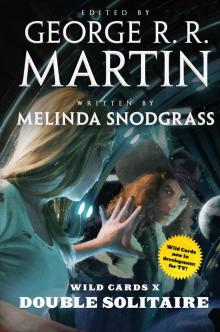 Double Solitaire (2019 Edition)
Double Solitaire (2019 Edition)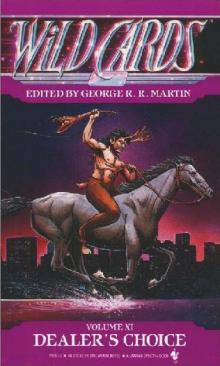 Dealer's Choice
Dealer's Choice Ace in the Hole
Ace in the Hole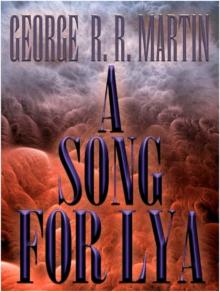 A Song for Lya: And Other Stories
A Song for Lya: And Other Stories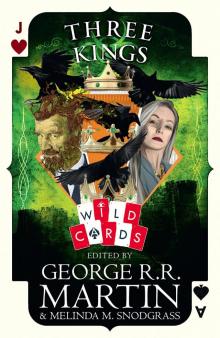 Three Kings
Three Kings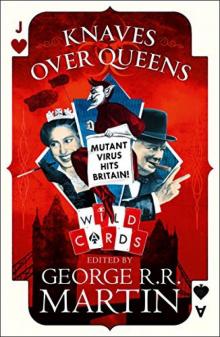 Knaves Over Queens
Knaves Over Queens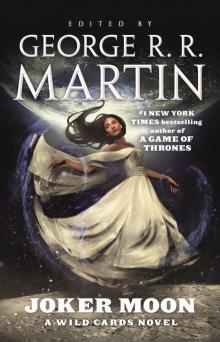 Joker Moon
Joker Moon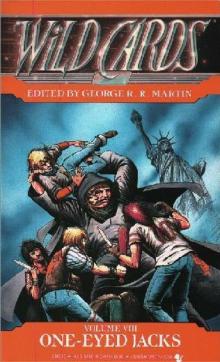 One Eyed Jacks wc-8
One Eyed Jacks wc-8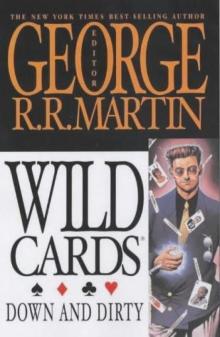 Down And Dirty wc-5
Down And Dirty wc-5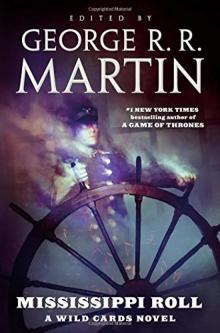 Mississippi Roll_A Wild Cards Novel
Mississippi Roll_A Wild Cards Novel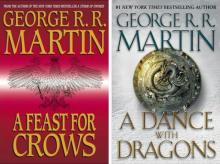 A Feast for Dragons
A Feast for Dragons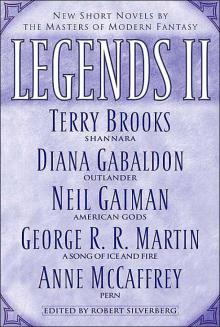 The Sworn Sword ttodae-2
The Sworn Sword ttodae-2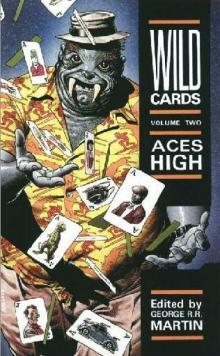 Aces High wc-2
Aces High wc-2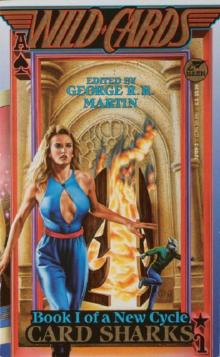 Wild Cards 13 : Card Sharks
Wild Cards 13 : Card Sharks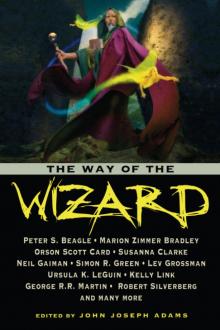 Way of the Wizard
Way of the Wizard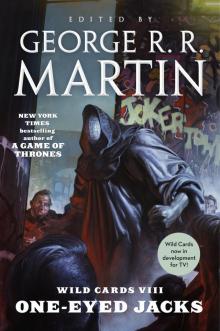 Wild Cards VIII: One-Eyed Jacks
Wild Cards VIII: One-Eyed Jacks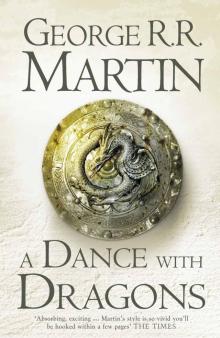 A Dance With Dragons: Book 5 of A Song of Ice and Fire (Song of Ice & Fire 5)
A Dance With Dragons: Book 5 of A Song of Ice and Fire (Song of Ice & Fire 5)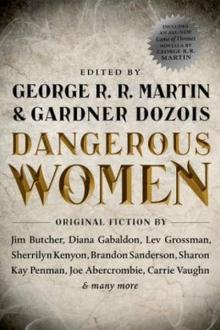 The Princess and The Queen, Or, The Blacks and The Greens (a song of ice and fire)
The Princess and The Queen, Or, The Blacks and The Greens (a song of ice and fire)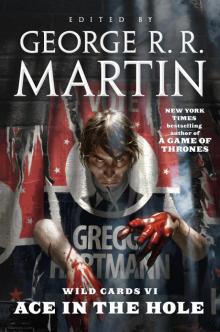 Wild Cards VI--Ace in the Hole
Wild Cards VI--Ace in the Hole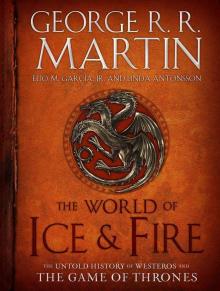 The World of Ice & Fire: The Untold History of Westeros and the Game of Thrones (A Song of Ice and Fire)
The World of Ice & Fire: The Untold History of Westeros and the Game of Thrones (A Song of Ice and Fire)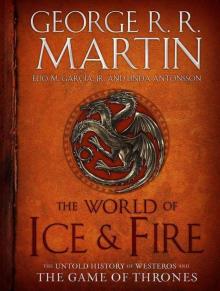 The World of Ice & Fire: The Untold History of Westeros and the Game of Thrones
The World of Ice & Fire: The Untold History of Westeros and the Game of Thrones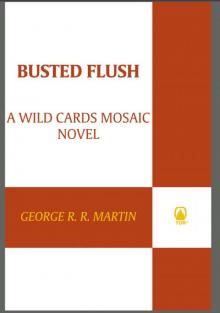 Busted Flush wc-19
Busted Flush wc-19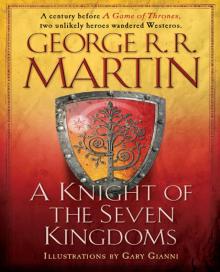 A Knight of the Seven Kingdoms
A Knight of the Seven Kingdoms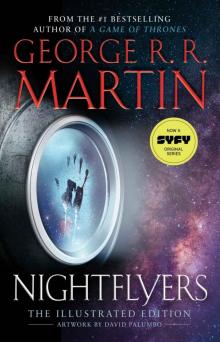 Nightflyers: The Illustrated Edition
Nightflyers: The Illustrated Edition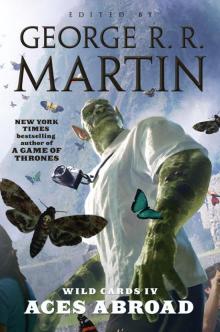 Wild Cards IV
Wild Cards IV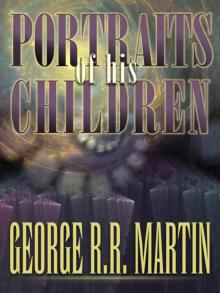 Portraits of His Children
Portraits of His Children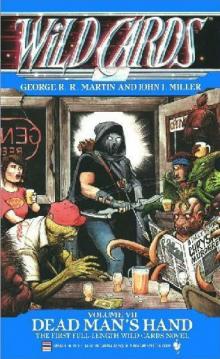 Dead Mans Hand wc-7
Dead Mans Hand wc-7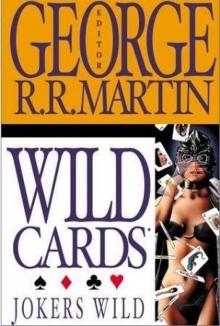 Jokers Wild wc-3
Jokers Wild wc-3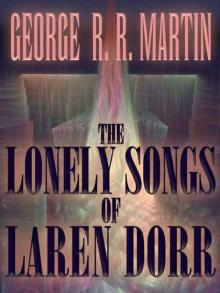 The Lonely Songs of Laren Dorr
The Lonely Songs of Laren Dorr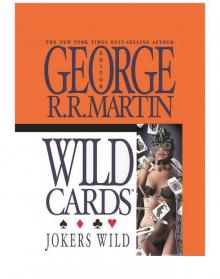 Wild Cards III: Jokers Wild
Wild Cards III: Jokers Wild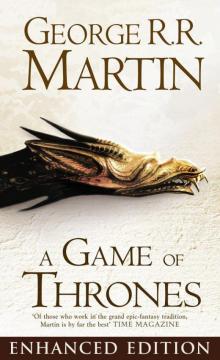 A Game of Thrones Enhanced Edition
A Game of Thrones Enhanced Edition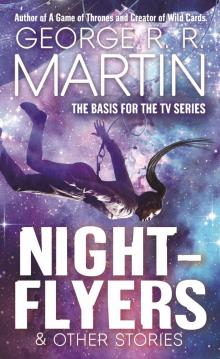 Nightflyers & Other Stories
Nightflyers & Other Stories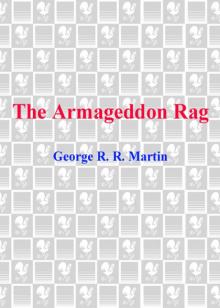 Armageddon Rag
Armageddon Rag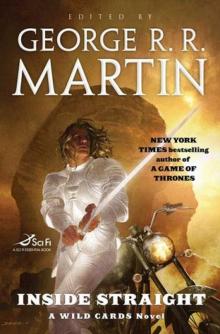 Wild Cards: Inside Straight
Wild Cards: Inside Straight A Song for Lya
A Song for Lya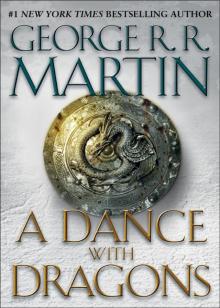 A Dance with Dragons: A Song of Ice and Fire: Book Five
A Dance with Dragons: A Song of Ice and Fire: Book Five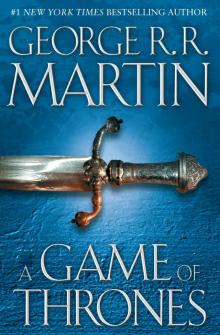 Song of Fire & Ice 01 - A Game of Thrones
Song of Fire & Ice 01 - A Game of Thrones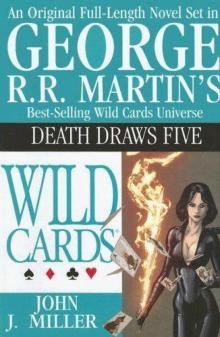 Death Draws Five wc-17
Death Draws Five wc-17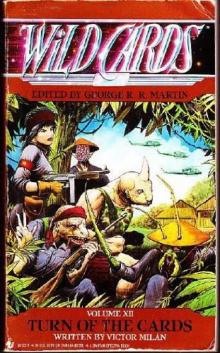 Turn of the Cards w-12
Turn of the Cards w-12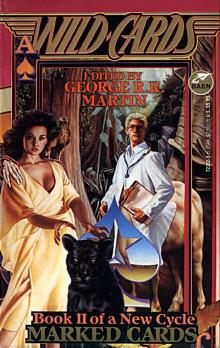 Wild Cards 14 - Marked Cards
Wild Cards 14 - Marked Cards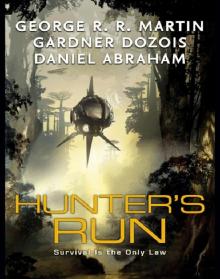 Hunter's Run
Hunter's Run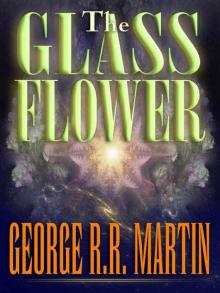 The Glass Flower
The Glass Flower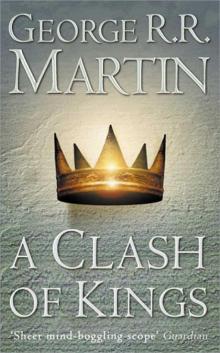 A Clash of Kings asoiaf-2
A Clash of Kings asoiaf-2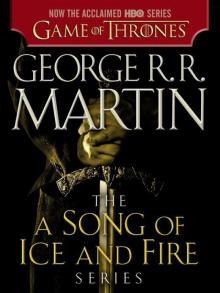 A Game of Thrones 5-Book Bundle: A Song of Ice and Fire Series: A Game of Thrones, A Clash of Kings, A Storm of Swords, A Feast for Crows, and A Dance with Dragons (Song of Ice & Fire)
A Game of Thrones 5-Book Bundle: A Song of Ice and Fire Series: A Game of Thrones, A Clash of Kings, A Storm of Swords, A Feast for Crows, and A Dance with Dragons (Song of Ice & Fire)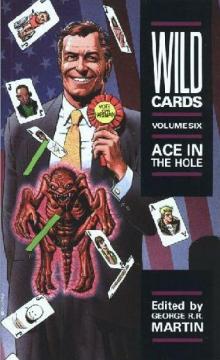 Ace In The Hole wc-6
Ace In The Hole wc-6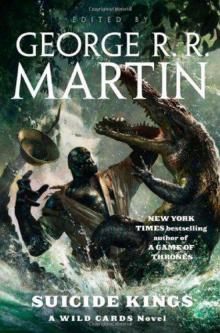 Suicide Kings wc-20
Suicide Kings wc-20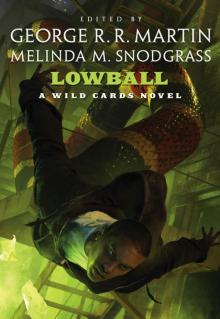 Lowball
Lowball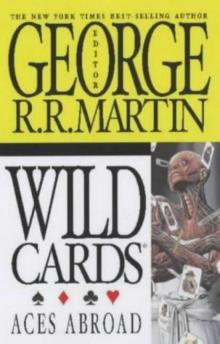 Aces Abroad wc-4
Aces Abroad wc-4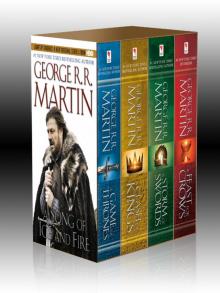 George R. R. Martin's a Game of Thrones 4-Book Bundle
George R. R. Martin's a Game of Thrones 4-Book Bundle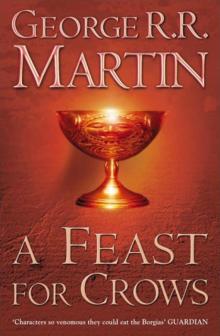 A Feast for Crows asoiaf-4
A Feast for Crows asoiaf-4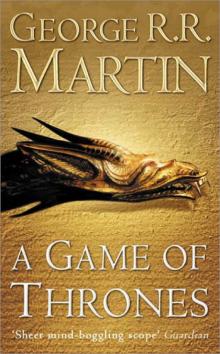 A Game of Thrones asoiaf-1
A Game of Thrones asoiaf-1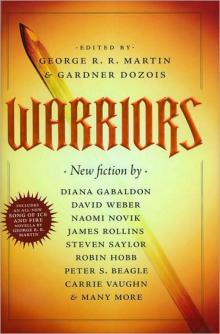 The Mystery Knight ttodae-3
The Mystery Knight ttodae-3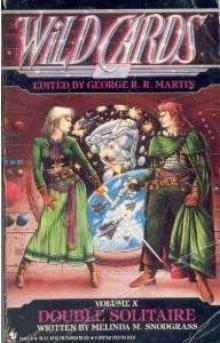 Double Solitaire w-10
Double Solitaire w-10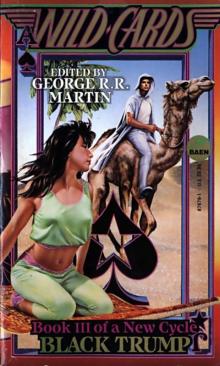 Wild Cards 15 - Black Trump
Wild Cards 15 - Black Trump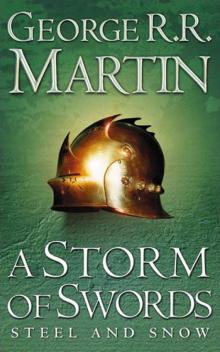 A Storm of Swords asoiaf-3
A Storm of Swords asoiaf-3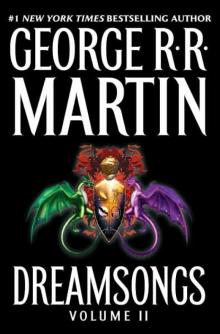 The Hedge Knight ttodae-1
The Hedge Knight ttodae-1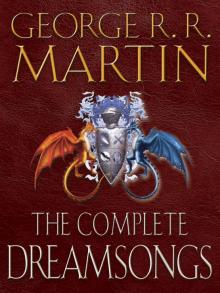 Dreamsongs 2-Book Bundle
Dreamsongs 2-Book Bundle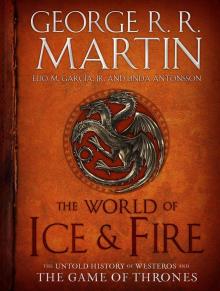 The World of Ice & Fire
The World of Ice & Fire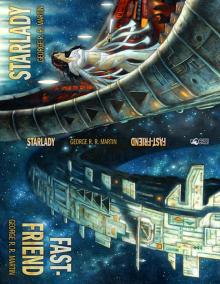 Starlady & Fast-Friend
Starlady & Fast-Friend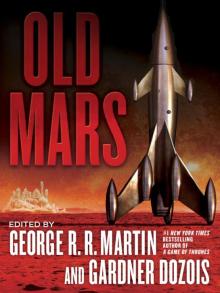 Old Mars
Old Mars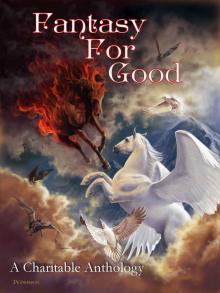 Fantasy For Good: A Charitable Anthology
Fantasy For Good: A Charitable Anthology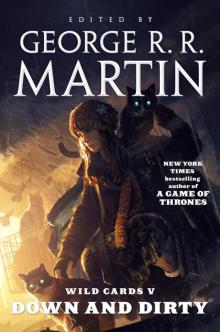 Wild Cards V
Wild Cards V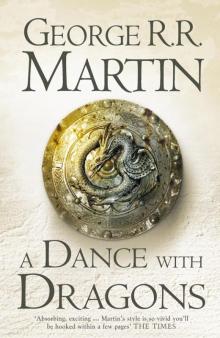 A Dance with Dragons asoiaf-5
A Dance with Dragons asoiaf-5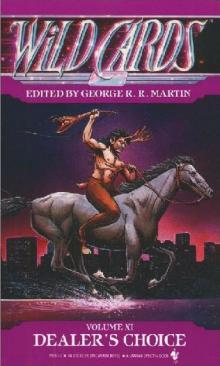 Dealer's Choice w-11
Dealer's Choice w-11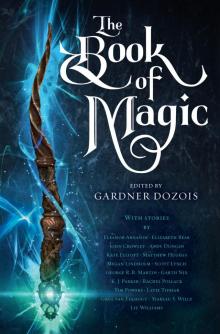 The Book of Magic
The Book of Magic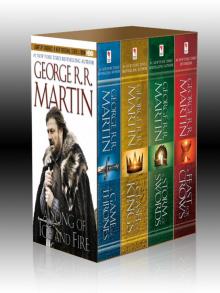 A Game of Thrones 4-Book Bundle
A Game of Thrones 4-Book Bundle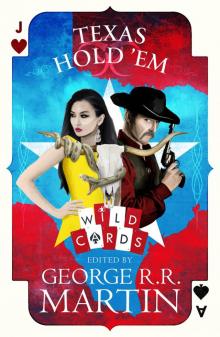 Texas Hold 'Em
Texas Hold 'Em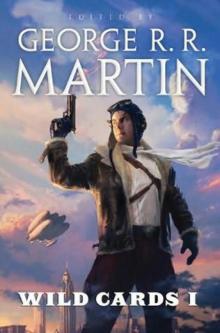 Wildcards wc-1
Wildcards wc-1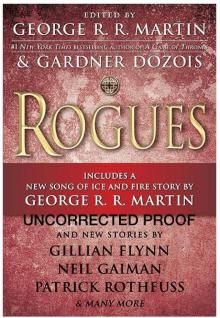 Rogues
Rogues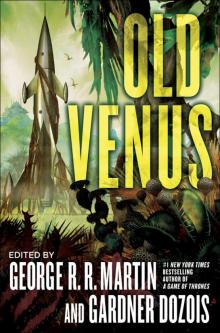 Old Venus
Old Venus